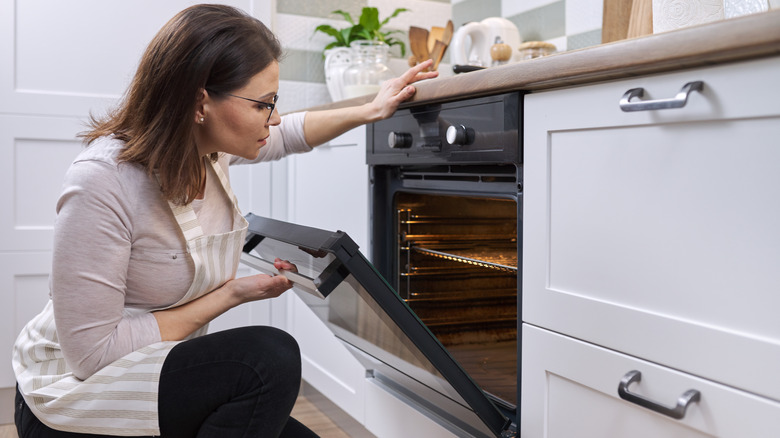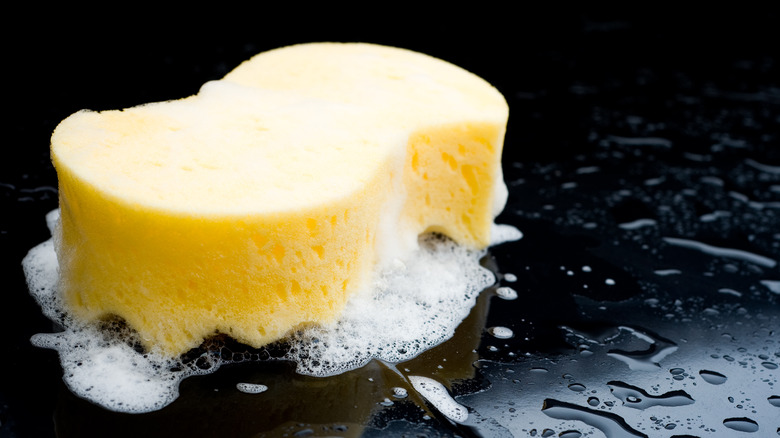Why You Might Want To Avoid The Self-Clean Setting On Your Oven
While the self-clean feature on your oven might seem convenient, opting to avoid the setting can be a wise decision for several reasons. For one thing, the extreme heat generated during the self-clean cycle, often referred to as the pyrolytic clean cycle, can cause an unruly smell. High temperatures up to 800 degrees Fahrenheit can lead to the release of fumes from residue, grease, and food particles within the oven.
These fumes can be unpleasant and even dangerous due to the release of carbon monoxide, and according to the Mayo Clinic, too much of it can cause carbon monoxide poisoning, a dangerous condition that has symptoms that initially mimic the flu. Moreover, the intense heat can exacerbate existing issues within your oven. Components like switches, the oven door lock, and electrical parts may deteriorate under such extreme conditions, potentially leading to malfunctions and costly repairs.
Additionally, the self-clean cycle's duration can be quite lengthy, consuming a significant amount of energy. This contradicts efforts to maintain energy efficiency in the kitchen, contributing to higher utility bills and a larger carbon footprint. Save your nose, wallet, and your oven the headache and skip the self-clean cycle.
How to clean your oven without using self-clean
All right, readers, roll up your sleeves and grab your rubber gloves; we're going to break down options for how to clean your oven (which you should be doing more often than you think) without the self-clean cycle while avoiding some of the most common mistakes.
Start off by using a mixture of baking soda and water. Create a paste and apply it to the interior surfaces of the oven to help break down stubborn grime. Allow the paste to sit overnight, and then gently scrub the surfaces with a non-abrasive sponge for a cleaner oven. Vinegar is another natural solution that can work wonders. Spray a mixture of equal parts vinegar and water onto the oven's interior, and let it sit for a while before wiping it clean to help eliminate odors and cut through grease.
Commercial oven cleaning products designed for home use offer a convenient option as these products are formulated to effectively remove tough residues without subjecting your oven to extreme heat. Just carefully follow the manufacturer's instructions and don't incorrectly mix any commercial products. For example, never mix ammonia and chlorine bleach, as it can be quite toxic and dangerous — per WebMD.
However you choose to clean your oven, remember that regular maintenance is key to avoiding heavy buildup. When the buildup gets out of control, sticky situations like grease fires and bug infestations can arise, and food can soak up unsavory flavors from baked-on grease. Keep your oven clean and ensure your cooking experiences stay "oven" the top!

